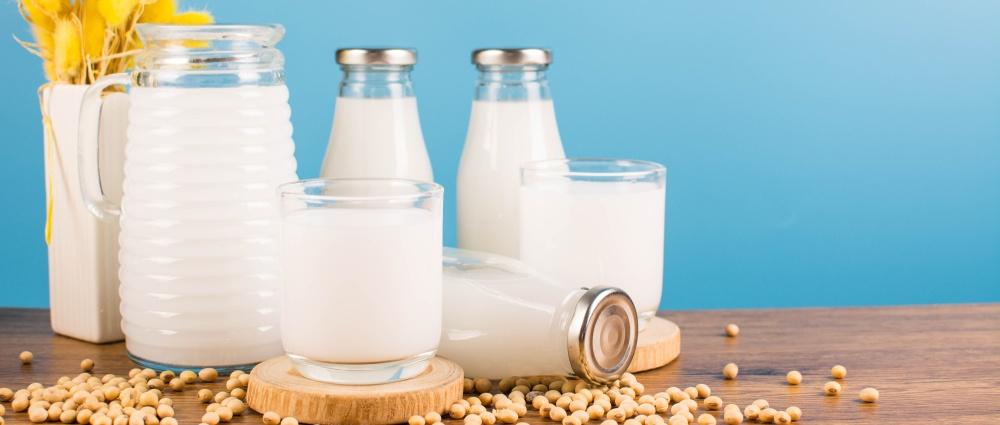
What it's like to go through early menopause
Peer reviewed by Dr Sarah Jarvis MBE, FRCGPLast updated by Lydia SmithLast updated 7 Jun 2019
Meets Patient’s editorial guidelines
- DownloadDownload
- Share
- Language
- Discussion
The menopause is a natural part of life that occurs when the ovaries stop producing eggs and when a woman's hormone levels change. Although it usually takes place between 45 and 55, around one in 100 women experience the menopause before 40 years of age.
Sign up for our free 10-week Menopause course!
Each week, we'll explore different topics to help you better understand and navigate your menopausal journey, including HRT, diet, exercise, and mental health.
By subscribing you accept our Privacy Policy. You can unsubscribe at any time. We never sell your data.
In this article:
Early menopause, or premature ovarian insufficiency (POI), is typically used to refer to menopause that occurs before the average age of normal menopause. The terms are generally used to describe the same condition, but the cut-off ages are different.
"By definition early menopause is less than 45 years of age," explains Dr Keith Spowart, a medical advisory council member at the British Menopause Society. "Premature ovarian insufficiency is under 40."
An estimated one in every 100 women under the age of 40, one in 1,000 women under 30 and one in 10,000 under 20 experience POI, according to the Daisy Network.
POI is also different to menopause not only because it occurs at a younger age, but also because ovarian function can fluctuate over time rather than stop. This can result in a period, ovulation or even pregnancy, several years after diagnosis.
"The way it affects women is usually the classic symptoms of flushes and sweats, mood swings and irritability," Spowart says.
The main symptom of early menopause is periods becoming infrequent or stopping altogether without another reason, such as pregnancy. Other symptoms include hot flushes, night sweats, difficulty sleeping, low mood or anxiety, reduced libido and vaginal dryness, as well as problems with memory and concentration.
Continue reading below
What causes POI?
Early menopause or POI can happen naturally if a woman's ovaries stop producing normal levels of hormones, in particular, oestrogen. Although the cause is often unknown, in some women it may be caused by chromosome abnormalities, such as Turner syndrome, a female-only genetic disorder.
"There's research around some genetic issues that might account for some cases," Spowart says. "Some people have autoimmune diseases that may lead to POI."
Some infections like malaria and mumps can cause early menopause or POI, but this is rare.
Whether or not you experience POI can also depend on your family - if any relatives experienced early menopause, it may increase your chances.
Cancer treatments, such as radiotherapy and chemotherapy, can also cause POI - which may or may not be temporary. The risk of having an early menopause depends on your age, the type of treatment you are receiving and where on the body the radiotherapy is focused. Having surgery to remove the ovaries can also trigger early menopause.
Emma, 25, was diagnosed with breast cancer in December 2017 and her treatment, including chemotherapy and a double mastectomy, has left her dealing with menopausal symptoms.
"Side effects from treatment, including menopausal symptoms like hot flushes, mood swings and aching bones, have made it difficult to lead a normal life," she says. "For example, I couldn't continue working as a primary school teacher during treatment, and I'm still not ready to return due to ongoing physical and mental problems.
"My social life has also been affected as I sometimes find it hard to relate to people, which is influenced by the hormonal changes, and I get anxious about telling new people about my diagnosis. Plus, lack of sleep, pain and fatigue have slowed me down - I am exhausted by things that wouldn't affect most people, which can make me feel like a burden."
What is the emotional impact of POI?
Back to contentsEarly menopause and POI is medically defined as the cessation of menstruation, but it can be so much more than that. The symptoms of early menopause and the impact on fertility can be upsetting and have a serious impact on mental well-being.
"A woman who finds herself with the symptoms of POI who hasn't had a family, that's a big issue. The loss of fertility and the psychological impact of that can be huge. Even for a woman who has had a family. Having the decision taken away from her is difficult," says Spowart.
The potential impact on sexual function can also be distressing too. "Vaginal dryness and symptoms like that can make sex uncomfortable and it can create distress and anxiety for women," he adds.
Although menopause is natural, stigma and the taboo about revealing menopausal symptoms can have an impact on women too.
"Some people are aware of POI in their families, but some families don't talk about it," Spowart says. "Having people talk about it and getting the right information out there are important."
Jennifer*, who began the menopause at 38, says she struggled with stigma associated with POI. "My symptoms, physically, were pretty standard - cessation of periods, sore breasts," she says.
"However, I was not in a great marriage at the time and my then father-in-law and to some extent my husband, had always enjoyed talking about women in this part of their lives as 'dried up'.
"I kept my diagnosis to myself for several months as this attitude completely diminished my self-esteem."
Continue reading below
How is POI treated?
Back to contentsYour GP should be able to make a diagnosis of early menopause based on your symptoms, your family history, and blood tests to check your hormone levels.
The main treatment for early menopause is either hormone replacement therapy (HRT) or the combined contraceptive pill. HRT is used to relieve the symptoms by replacing the hormones that are at a lower level as you approach the menopause. It can also prevent osteoporosis - weakening of the bones - which is more common after the menopause.Your risk of osteoporosis is therefore much higher if you've gone through early menopause.
Most women take a combination of oestrogen and progestogen; however, women who don't have a womb can take oestrogen on its own. These hormones can be taken in different ways, including tablets, patches, gels, and vaginal creams, pessaries or rings.
HRT may not be suitable if you have a history of breast, ovarian or womb cancer, blood clots, high blood pressure or liver disease. It's possible to get pregnant while on HRT, so you should use contraception until two years after your last period, or for one year after the age of 50.
Lifestyle changes - such as wearing light clothing, keeping your bedroom cool, avoiding caffeine, smoking or drinking alcohol, and getting exercise - can help relieve some symptoms. Relaxing activities and mindfulness can help with mood swings, low mood and anxiety, and medications or cognitive behavioural therapy may be advised by your GP.
You can access support from the British Menopause Society, Women's Health Network or the Daisy Network.
You may still be able to have children by using IVF and donated eggs or using your own eggs if you had some stored. Surrogacy UK is a charity that supports both surrogates and parents through the surrogacy process.
*Names have been changed to protect identities.
For support on managing menopausal symptoms from breast cancer treatment, visit Breast Cancer Care and Breast Cancer Now’s expert nurses on 0808 800 6000
Patient picks for Menopause and HRT

Hormones
Your diet and the menopause
Hot flushes are just one of the many symptoms of the menopause, along with mood swings, exhaustion, and weight gain, which can affect your day-to-day life. HRT is an effective treatment for hot flushes, but making changes to your diet may also help ease some of the challenging symptoms too.
by Lawrence Higgins

Hormones
Do herbal remedies for menopause really work?
For women, menopause is a natural phase of life. But can herbal remedies offer relief from its symptoms? While some evidence claims certain supplements may work, these products are unregulated, so it's hard to know what you're taking. Here we explain what things to look out for that can help you check whether a product is safe and effective.
by Lawrence Higgins
Article history
The information on this page is peer reviewed by qualified clinicians.
7 Jun 2019 | Latest version

Ask, share, connect.
Browse discussions, ask questions, and share experiences across hundreds of health topics.

Feeling unwell?
Assess your symptoms online for free
Sign up to the Patient newsletter
Your weekly dose of clear, trustworthy health advice - written to help you feel informed, confident and in control.
By subscribing you accept our Privacy Policy. You can unsubscribe at any time. We never sell your data.